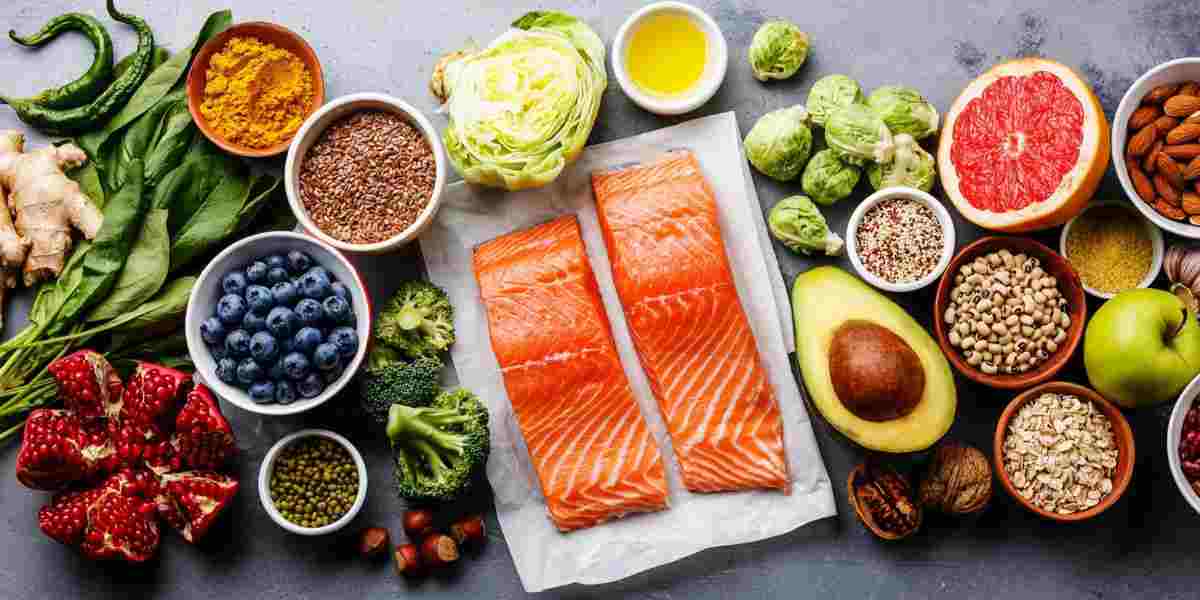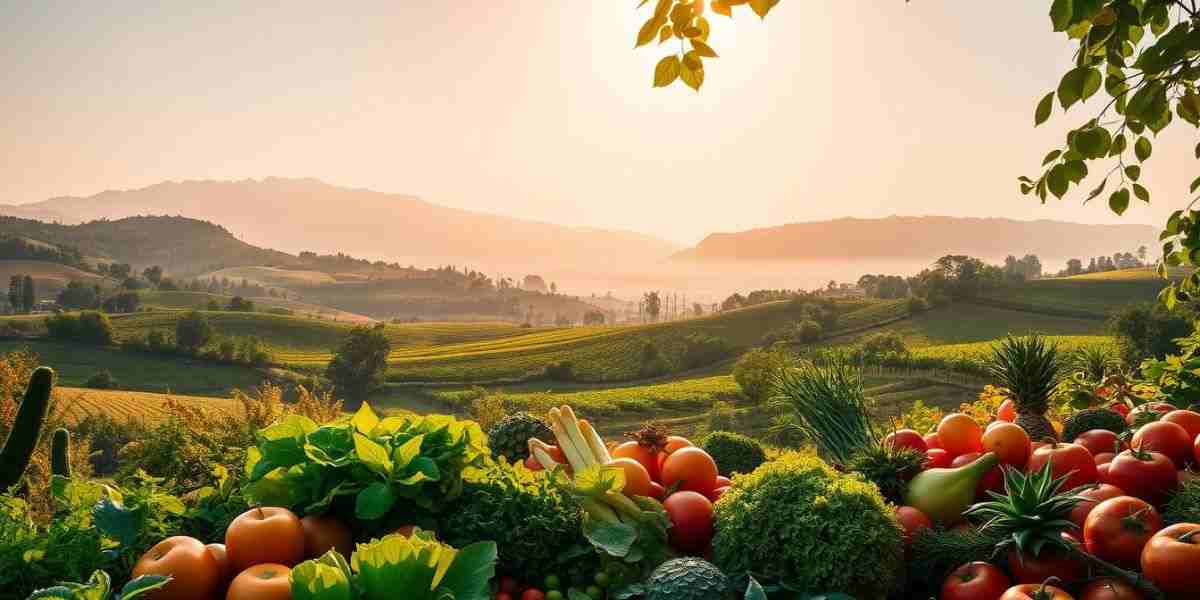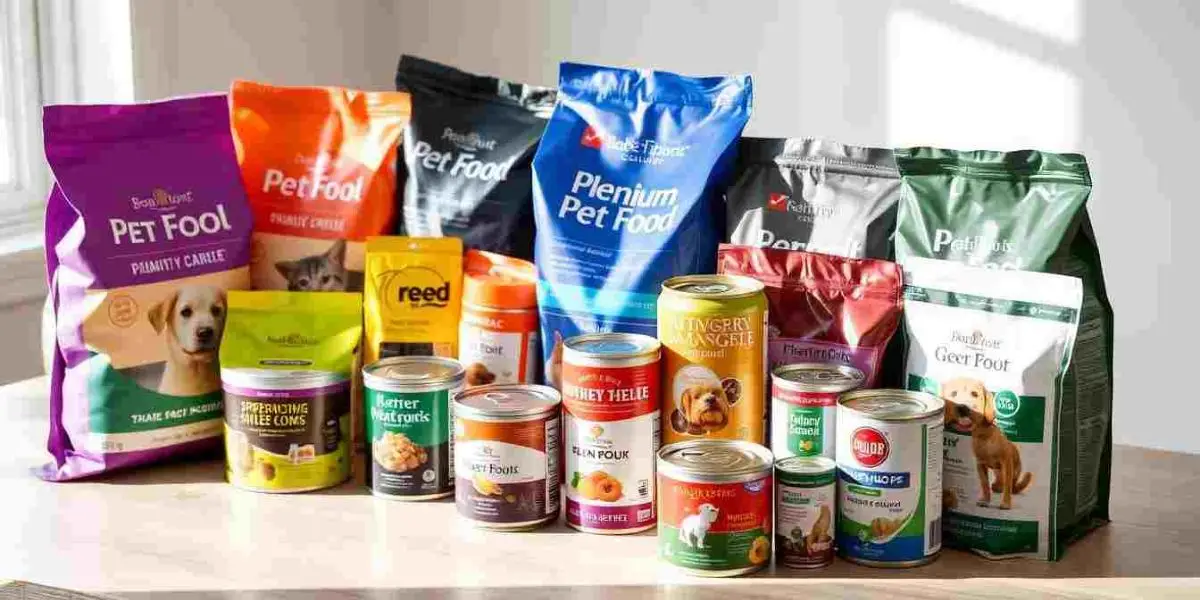Can Organic Foods Be GMO-Free?: In recent years, the demand for organic foods has skyrocketed, driven by a growing interest in healthier eating habits and more sustainable farming practices. However, one question remains central to the conversation: Can organic foods be GMO-free? The short answer is yes, but the details are worth exploring to understand the complexities of GMO-free certification, the practices involved, and what it means for your health and the environment.
Understanding GMOs and Organic Foods
Before diving into whether organic foods can be GMO-free, it’s essential to understand the difference between genetically modified organisms (GMOs) and organic foods.
What are GMOs?
Genetically Modified Organisms (GMOs) are plants or animals that have been altered through genetic engineering to introduce traits that are not naturally found in the species. These traits may include resistance to pests or environmental conditions, increased yield, or enhanced nutritional content. While GMOs have revolutionized modern agriculture, they have also raised concerns about their long-term impact on health and the environment.
Also Read
What Makes Food Organic?
Organic food, on the other hand, refers to food produced without the use of synthetic chemicals, fertilizers, or genetically modified organisms. Organic farming practices emphasize sustainability, biodiversity, and soil health. The certification process ensures that the food you purchase is grown according to these principles.
GMO-Free Certification for Organic Foods
For food to be certified organic, it must meet specific guidelines, including being grown without GMOs. The USDA Organic certification seal guarantees that a product is free from GMOs. But how does this certification work, and is it foolproof?
The Role of the USDA Organic Seal
The USDA Organic seal is a mark of trust, ensuring that food has been produced without synthetic fertilizers, pesticides, or GMOs. Organic farms must adhere to strict guidelines, and their products are regularly inspected to ensure compliance.
Other Certification Bodies Around the World
While the USDA Organic Seal is widely recognized, many countries have their certification bodies. For instance, the European Union has its Organic certification, and in Canada, the Canada Organic label is used to signify GMO-free organic products. These certification bodies follow similar standards to those of the USDA, ensuring that organic food is free from GMOs.
Can Organic Foods Be Truly GMO-Free?
The next question that often arises is whether organic foods can be completely free of GMOs. The truth is a bit more complicated than a simple yes or no.
Cross-Contamination: Is It Possible?
While organic foods are grown without GMOs, there is a risk of cross-contamination. Wind, insects, or neighboring GMO crops can sometimes introduce GMOs into organic fields. However, organic farmers take significant precautions to minimize this risk, such as buffer zones between organic and GMO crops and using organic seeds.
How Strict Are the Organic Regulations?
The regulations surrounding organic certification are strict, and any contamination found during inspections can result in the loss of organic certification. Organic farms undergo regular audits to ensure they meet the necessary standards, and those that fail are penalized.
The Benefits of GMO-Free Organic Foods
Choosing GMO-free organic foods can provide several health and environmental benefits.
Health Benefits of GMO-Free Foods
Many consumers prefer GMO-free foods due to concerns about potential health risks associated with genetically modified ingredients. While scientific consensus on the safety of GMOs is still evolving, many people choose organic foods to avoid genetically modified ingredients and the use of synthetic pesticides.
Environmental Impact of GMO-Free Agriculture
Organic farming practices tend to be more environmentally friendly. By avoiding synthetic chemicals and emphasizing crop rotation and biodiversity, organic farmers help preserve soil health and reduce the impact of agriculture on the environment.
How to Ensure Your Organic Food is GMO-Free
Now that you know what to look for, here are some practical tips to ensure your organic food is GMO-free.
Reading Labels and Certifications
Look for the USDA Organic seal or equivalent certifications from trusted bodies in your country. These seals indicate that the product is not only organic but also free from GMOs.
Sourcing from Trusted Farmers and Producers
Buying from local farmers or trusted organic food suppliers can ensure that the food you are purchasing is truly GMO-free. Many smaller farms focus on maintaining high standards of organic production.
Common Myths About GMO-Free Organic Foods
There are several misconceptions surrounding GMO-free organic foods. Let’s debunk some of the most common ones.
The Myth of Total GMO-Free Guarantee
Some people believe that organic foods are guaranteed to be 100% free from GMOs. While organic certification ensures that the food is grown without GMOs, cross-contamination can still occur, although regulations strive to minimize this.
Misconceptions About GMO Safety in Organic Foods
Some argue that GMOs are safe and that there’s no reason to avoid them. While GMOs are considered safe by many regulatory agencies, concerns about their long-term environmental and health effects persist, leading many to prefer GMO-free organic foods.
The Future of GMO-Free Organic Foods
As consumer demand for GMO-free organic foods grows, what does the future hold?
Technological Advances in Organic Farming
Advances in organic farming technology could help reduce the risk of GMO contamination and improve the efficiency of organic farming. Techniques such as precision farming and genetic research into non-GMO crop varieties may help maintain organic standards.
The Growing Demand for GMO-Free Products
With an increasing number of people choosing organic and GMO-free foods, the demand for these products is expected to rise. This trend is likely to drive innovations in organic farming and supply chains to meet consumer expectations.
Conclusion: Is GMO-Free Organic Food Right for You?
Choosing GMO-free organic foods offers several health and environmental benefits. While no food can be guaranteed 100% free from GMOs due to potential cross-contamination, certified organic foods assure adherence to strict standards that prioritize sustainability and human health.
FAQs
1. What is the difference between organic and GMO-free?
Organic foods are grown without synthetic chemicals and GMOs, while GMO-free foods simply exclude genetically modified ingredients.
2. Can organic food be genetically modified?
No, organic food cannot contain genetically modified organisms, according to organic certification standards.
3. Is there a risk of GMO contamination in organic foods?
Yes, there is a slight risk of cross-contamination from neighboring GMO crops, but organic regulations take measures to minimize this.
4. How can I tell if my food is GMO-free?
Look for trusted organic certification labels like the USDA Organic seal to confirm the food is GMO-free.
5. Are GMOs safe to consume?
The safety of GMOs is a topic of ongoing research, but many regulatory agencies consider them safe. However, some consumers prefer GMO-free organic foods due to concerns about long-term health and environmental effects.
6. Can organic farming be sustainable?
Yes, organic farming promotes sustainability by using natural farming practices that prioritize soil health, biodiversity, and the reduction of chemical use.









